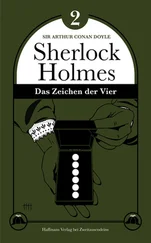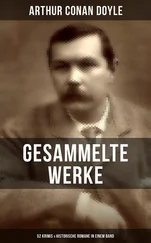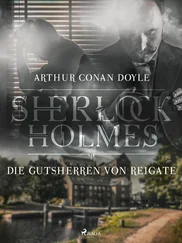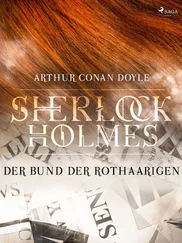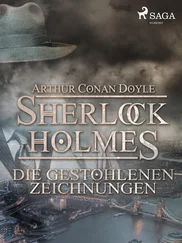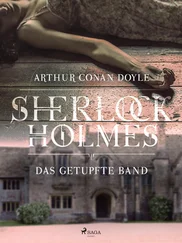Arthur Conan Doyle - Sir Nigel
Здесь есть возможность читать онлайн «Arthur Conan Doyle - Sir Nigel» — ознакомительный отрывок электронной книги совершенно бесплатно, а после прочтения отрывка купить полную версию. В некоторых случаях можно слушать аудио, скачать через торрент в формате fb2 и присутствует краткое содержание. Жанр: foreign_prose, на английском языке. Описание произведения, (предисловие) а так же отзывы посетителей доступны на портале библиотеки ЛибКат.
- Название:Sir Nigel
- Автор:
- Жанр:
- Год:неизвестен
- ISBN:нет данных
- Рейтинг книги:4 / 5. Голосов: 1
-
Избранное:Добавить в избранное
- Отзывы:
-
Ваша оценка:
- 80
- 1
- 2
- 3
- 4
- 5
Sir Nigel: краткое содержание, описание и аннотация
Предлагаем к чтению аннотацию, описание, краткое содержание или предисловие (зависит от того, что написал сам автор книги «Sir Nigel»). Если вы не нашли необходимую информацию о книге — напишите в комментариях, мы постараемся отыскать её.
Sir Nigel — читать онлайн ознакомительный отрывок
Ниже представлен текст книги, разбитый по страницам. Система сохранения места последней прочитанной страницы, позволяет с удобством читать онлайн бесплатно книгу «Sir Nigel», без необходимости каждый раз заново искать на чём Вы остановились. Поставьте закладку, и сможете в любой момент перейти на страницу, на которой закончили чтение.
Интервал:
Закладка:
Sir Nigel
by Sir Arthur Conan Doyle
Introduction
Dame History is so austere a lady that if one, has been so ill-advised as to take a liberty with her, one should hasten to make amends by repentance and confession. Events have been transposed to the extent of some few months in this narrative in order to preserve the continuity and evenness of the story. I hope so small a divergence may seem a venial error after so many centuries. For the rest, it is as accurate as a good deal of research and hard work could make it.
The matter of diction is always a question of taste and discretion in a historical reproduction. In the year 1350 the upper classes still spoke Norman-French, though they were just beginning to condescend to English. The lower classes spoke the English of the original Piers Plowman text, which would be considerably more obscure than their superiors' French if the two were now reproduced or imitated. The most which the chronicles can do is to catch the cadence and style of their talk, and to infuse here and there such a dash of the archaic as may indicate their fashion of speech.
I am aware that there are incidents which may strike the modern reader as brutal and repellent. It is useless, however, to draw the Twentieth Century and label it the Fourteenth. It was a sterner age, and men's code of morality, especially in matters of cruelty, was very different. There is no incident in the text for which very good warrant may not be given. The fantastic graces of Chivalry lay upon the surface of life, but beneath it was a half-savage population, fierce and animal, with little ruth or mercy. It was a raw, rude England, full of elemental passions, and redeemed only by elemental virtues. Such I have tried to draw it.
For good or bad, many books have gone to the building of this one. I look round my study table and I survey those which lie with me at the moment, before I happily disperse them forever. I see La Croix's "Middle Ages," Oman's "Art of War," Rietstap's "Armorial General," De la Borderie's "Histoire de Bretagne," Dame Berner's "Boke of St. Albans," "The Chronicle of Jocelyn of Brokeland," "The Old Road," Hewitt's "Ancient Armour," Coussan's "Heraldry," Boutell's "Arms," Browne's "Chaucer's "England," Cust's "Scenes of the Middle Ages," Husserand's "Wayfaring Life," Ward's "Canterbury Pilgrims;" Cornish's "Chivalry," Hastings' "British Archer," Strutt's "Sports," Johnes Froissart, Hargrove's "Archery," Longman's "Edward III," Wright's "Domestic Manners." With these and many others I have lived for months. If I have been unable to combine and transfer their effect, the fault is mine.
Arthur Conan Doyle. "Undershaw," November 30, 1905.Chapter I. The house of Loring
In the month of July of the year 1348, between the feasts of St. Benedict and of St. Swithin, a strange thing came upon England, for out of the east there drifted a monstrous cloud, purple and piled, heavy with evil, climbing slowly up the hushed heaven. In the shadow of that strange cloud the leaves drooped in the trees, the birds ceased their calling, and the cattle and the sheep gathered cowering under the hedges. A gloom fell upon all the land, and men stood with their eyes upon the strange cloud and a heaviness upon their hearts. They crept into the churches where the trembling people were blessed and shriven by the trembling priests. Outside no bird flew, and there came no rustling from the woods, nor any of the homely sounds of Nature. All was still, and nothing moved, save only the great cloud which rolled up and onward, with fold on fold from the black horizon. To the west was the light summer sky, to the east this brooding cloud-bank, creeping ever slowly across, until the last thin blue gleam faded away and the whole vast sweep of the heavens was one great leaden arch.
Then the rain began to fall. All day it rained, and all the night and all the week and all the month, until folk had forgotten the blue heavens and the gleam of the sunshine. It was not heavy, but it was steady and cold and unceasing, so that the people were weary of its hissing and its splashing, with the slow drip from the eaves. Always the same thick evil cloud flowed from east to west with the rain beneath it. None could see for more than a bow-shot from their dwellings for the drifting veil of the rain-storms. Every morning the folk looked upward for a break, but their eyes rested always upon the same endless cloud, until at last they ceased to look up, and their hearts despaired of ever seeing the change. It was raining at Lammas-tide and raining at the Feast of the Assumption and still raining at Michaelmas. The crops and the hay, sodden and black, had rotted in the fields, for they were not worth the garnering. The sheep had died, and the calves also, so there was little to kill when Martinmas came and it was time to salt the meat for the winter. They feared a famine, but it was worse than famine which was in store for them.
For the rain had ceased at last, and a sickly autumn sun shone upon a land which was soaked and sodden with water. Wet and rotten leaves reeked and festered under the foul haze which rose from the woods. The fields were spotted with monstrous fungi of a size and color never matched before – scarlet and mauve and liver and black. It was as though the sick earth had burst into foul pustules; mildew and lichen mottled the walls, and with that filthy crop Death sprang also from the water-soaked earth. Men died, and women and children, the baron of the castle, the franklin on the farm, the monk in the abbey and the villein in his wattle-and-daub cottage. All breathed the same polluted reek and all died the same death of corruption. Of those who were stricken none recovered, and the illness was ever the same – gross boils, raving, and the black blotches which gave its name to the disease. All through the winter the dead rotted by the wayside for want of some one to bury them. In many a village no single man was left alive. Then at last the spring came with sunshine and health and lightness and laughter – the greenest, sweetest, tenderest spring that England had ever known – but only half of England could know it. The other half had passed away with the great purple cloud.
Yet it was there in that stream of death, in that reek of corruption, that the brighter and freer England was born. There in that dark hour the first streak of the new dawn was seen. For in no way save by a great upheaval and change could the nation break away from that iron feudal system which held her limbs. But now it was a new country which came out from that year of death. The barons were dead in swaths. No high turret nor cunning moat could keep out that black commoner who struck them down.
Oppressive laws slackened for want of those who could enforce them, and once slackened could never be enforced again. The laborer would be a slave no longer. The bondsman snapped his shackles. There was much to do and few left to do it. Therefore the few should be freemen, name their own price, and work where and for whom they would. It was the black death which cleared the way for that great rising thirty years later which left the English peasant the freest of his class in Europe.
But there were few so far-sighted that they could see that here, as ever, good was coming out of evil. At the moment misery and ruin were brought into every family. The dead cattle, the ungarnered crops, the untilled lands – every spring of wealth had dried up at the same moment. Those who were rich became poor; but those who were poor already, and especially those who were poor with the burden of gentility upon their shoulders, found themselves in a perilous state. All through England the smaller gentry were ruined, for they had no trade save war, and they drew their living from the work of others. On many a manor-house there came evil times, and on none more than on the Manor of Tilford, where for many generations the noble family of the Lorings had held their home.
Читать дальшеИнтервал:
Закладка:
Похожие книги на «Sir Nigel»
Представляем Вашему вниманию похожие книги на «Sir Nigel» списком для выбора. Мы отобрали схожую по названию и смыслу литературу в надежде предоставить читателям больше вариантов отыскать новые, интересные, ещё непрочитанные произведения.
Обсуждение, отзывы о книге «Sir Nigel» и просто собственные мнения читателей. Оставьте ваши комментарии, напишите, что Вы думаете о произведении, его смысле или главных героях. Укажите что конкретно понравилось, а что нет, и почему Вы так считаете.

